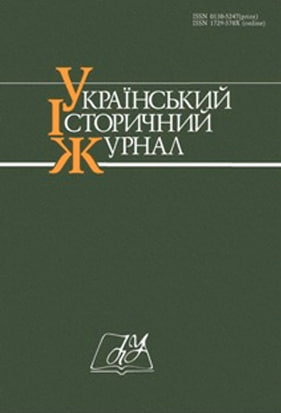Ukrainian-Polish Relations in the World War II: Interpretations of the Past in the Context of Changing Geopolitical Realities
DOI:
https://doi.org/10.15407/uhj2023.04.098Keywords:
Volyn tragedy, Ukrainian-Polish relations, World War II, historiographyAbstract
The purpose is to examine the main trends in the development of domestic and foreign historiography of the Volyn tragedy, which will allow us to propose steps to establish a historical dialogue. Understanding the process of scientific historical knowledge accumulation about the relations between the two states and peoples, which hindered their development, and outlining promising areas for further research in connection with the genesis of the theoretical and methodological foundations of research is a practical and applied task.
The methodology is based on the integrated use of scientific principles (historicism, objectivity, consistency, continuity), as well as the use of general scientific, interdisciplinary, and special historical methods (historiographical analysis and synthesis, historical and chronological, historical and comparative, systemic and structural, historical and genetic, historical and typological, etc.
The scientific novelty is to identify, on the basis of a wide range of historiographical sources, the stages and directions/currents of the historiography of the Ukrainian-Polish confrontation during the World War II.
Main results. It is indicated that the Volyn events turned out to be the most painful page of the common Ukrainian-Polish past. The views of Ukrainian and Polish historians on the problem are presented. The main trends and stages of studying the Volyn tragedy by historians of Ukraine and Poland are analysed. It is stated that today’s historiography includes hundreds of scientific studies devoted to the Volyn problem with different levels of scientific value and novelty. The author points out the disproportionality, which is a manifestation of their unequal importance for Ukrainian and Polish historians, and on the other hand, the inertia and template of research activities. The article not only describes the state of development of national historiographies but also identifies promising areas. Conclusions. The contrariety of approaches and interpretations of facts and events is caused by researchers belonging to different scientific trends, schools, and even specific preferences, views, and interests.


